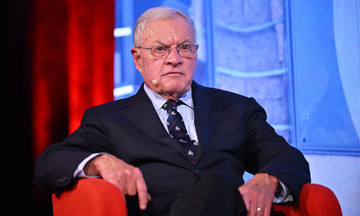The Pentagon's Defense Security Cooperation Agency (DSCA) announced on 30/6 that the US State Department had approved a potential $510 million arms sale to Israel. The sale includes 3,845 JDAM kits for BLU-109 bunker-buster bombs weighing nearly one ton and 3,280 kits for 230 kg Mark 82 bombs, along with technical and logistical support.
Boeing is the primary contractor for the deal, and some JDAM kits may be sourced directly from US military stockpiles. "This proposed sale will enhance Israel’s ability to meet current and future threats by improving its ability to defend its borders and critical infrastructure," the DSCA stated.
 |
US airmen attach a JDAM kit to a BLU-109 bomb at Mountain Home Air Force Base in Idaho in 2020. Photo: USAF |
US airmen attach a JDAM kit to a BLU-109 bomb at Mountain Home Air Force Base in Idaho in 2020. Photo: USAF
The agency reaffirmed Washington's commitment to Israel's security, emphasizing that "supporting Israel in developing and maintaining a strong self-defense capability is fundamental to US national security interests."
The US Congress has 30 days from the notification date to decide whether to block the sale. If there are no objections, the contract will be submitted to President Donald Trump for final approval.
JDAM guidance kits consist of GPS and control systems attached to conventional bombs, converting them into precision-guided weapons. This approach allows for the utilization of existing bomb stockpiles, rather than producing more expensive smart bombs.
The Israel Defense Forces (IDF) have repeatedly used JDAM bombs in Middle Eastern conflicts, including the late 2024 attack on the outskirts of Beirut, Lebanon, which reportedly killed Hezbollah leader Hassan Nasrallah.
The sale's approval coincides with Israel's shift in focus towards the Gaza Strip following a ceasefire with Iran on 24/6. At least 97 Palestinians were killed on 30/6 after Israeli airstrikes on several areas in Gaza, some of which apparently included refugee shelters.
The US has faced international criticism for its continued military support of Israel despite rising civilian casualties in Gaza.
The risk of renewed conflict between Israel and Iran also remains. On 29/6, Iran's ambassador to the United Nations, Amir Saeid Iravani, stated that Tehran would never stop enriching uranium, while Israeli Prime Minister Benjamin Netanyahu declared that he would not allow Iran to rebuild its nuclear facilities.
Pham Giang (After AFP, Ynet, Anadolu)












